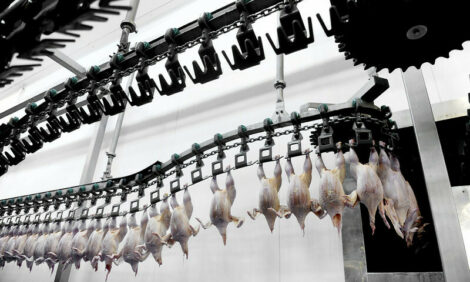



AVMA called on to remove inhumane killing methods used in pig and poultry depopulation
World Animal Protection is calling on the American Veterinary Medical Association (AVMA) to remove two inhumane killing methods currently approved in its guidelines for the depopulation of animals.In its letter, the international animal welfare organisation says ventilation shutdown (VSD) and water-based foam (WBF) should never be used as they fail to ensure immediate unconsciousness, and cause extreme suffering and an agonising death through prolonged heat stress and suffocation.
The group's letter follows two recent cases of farmed animal depopulations as a result of supply disruptions owing to COVID-19. A chicken plant closure led to a poultry company killing two million birds that could not be processed for food. An outbreak of bird flu in South Carolina resulted in the reactive killing of 300,000 turkeys to prevent the spread of the disease. This week, the pork industry acknowledged that plant closures due to COVID-19 may soon lead to the killing of millions of young pigs that they can no longer raise to market.
“This is a challenging time for everyone. Ensuring that workers are protected, and zoonotic disease outbreaks are contained has to be done,” says Alesia Soltanpanah, Executive Director of World Animal Protection US. “However, some killing methods US producers are permitted to use in emergencies cause extreme distress and suffering for the animals and should never be allowed in any circumstance.”
The AVMA's guidance to industry on the depopulation of large numbers of animals in emergencies recommend WBF for chickens and accept VSD for chickens and pigs. Both fail to render the animals insensitive to pain or cause death without distress. WBF was developed by adapting foam previously used in firefighting. It obstructs the animal’s airway, similar to drowning or suffocation, and causes death over several, stressful minutes. VSD involves shutting off airflow in a barn and then often adding heaters. The animals are killed by a combination of excessive heat, carbon dioxide, and other gases that arise in the barns. The process is distressing and painful and can take several hours for animals to die.
The use of any method that does not cause immediate loss of consciousness for killing is considered inhumane and unacceptable to World Animal Protection. The World Organisation for Animal Health (OIE) - a global intergovernmental body responsible for improving animal health worldwide - does not condone their use even for emergency disease control.
“These emergency mass killings are more evidence that the system is broken,” says Soltanpanah. “The industry has been allowed to scale-up with flagrant disregard for how it has made animals, workers, and the environment more vulnerable. To build a more resilient food system, we need to support diverse, small and mid-size family farmers that grow mostly plant-based foods and raise animals humanely.”









